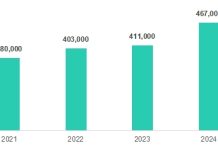Claroty, the cyber-physical systems protection company, has joined the World Economic Forum’s Global Innovators Community, an invitation-only group of the world’s most promising start-ups and scale-ups that are at the forefront of ethical technological and business model innovation.
As a Global Innovator, Claroty will engage with the Forum’s Centre for Cybersecurity and Claroty CEO Yaniv Vardi will attend the Annual Meeting in Davos in January 2023.
The World Economic Forum (WEF) provides the Global Innovators Community with a platform to engage with the public- and private-sector leaders. Companies who are invited to become Global Innovators will engage with relevant Forum platforms to help define the global agenda on key issues.
By contributing to the Centre for Cybersecurity platform, Claroty and other partners are leading the global response to overcome the current crisis and build future resiliency, the firm said in a statement.
“We are pleased to have Claroty join the Global Innovators Community and we look forward to the team’s contributions to the Centre for Cybersecurity,” said Verena Kuhn, Global Innovators Community Head, World Economic Forum.
“Claroty will be engaging in several workstreams that look to enhance cyber resilience by developing and scaling forward-looking solutions and promoting effective practices across digital ecosystems.”
At the Annual Meeting in Davos, Claroty CEO Yaniv Vardi will join leaders from government, business, and civil society to address the state of the world and discuss priorities for the year ahead. Earlier this year, Claroty was one of 18 companies that came together to take a Cyber Resilience Pledge, which aims to mobilize global commitment towards strengthening cyber resilience across industry ecosystems.
“We are honored to join the World Economic Forum’s Global Innovators Community and partner with world leaders to address systemic security risks and threats, especially those facing critical infrastructure,” said Vardi.
“Our industry is at a pivotal juncture, as the world has woken up to the staggering financial and societal repercussions that can occur when critical infrastructure is disrupted. On top of this, business leaders continue to deal with the impact of the pandemic, the economic recession, and geopolitical tensions, while determining how to operate efficiently and securely. It is against this backdrop that organizations must strive to remain resilient despite unprecedented and unpredictable issues.”















